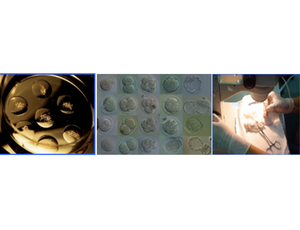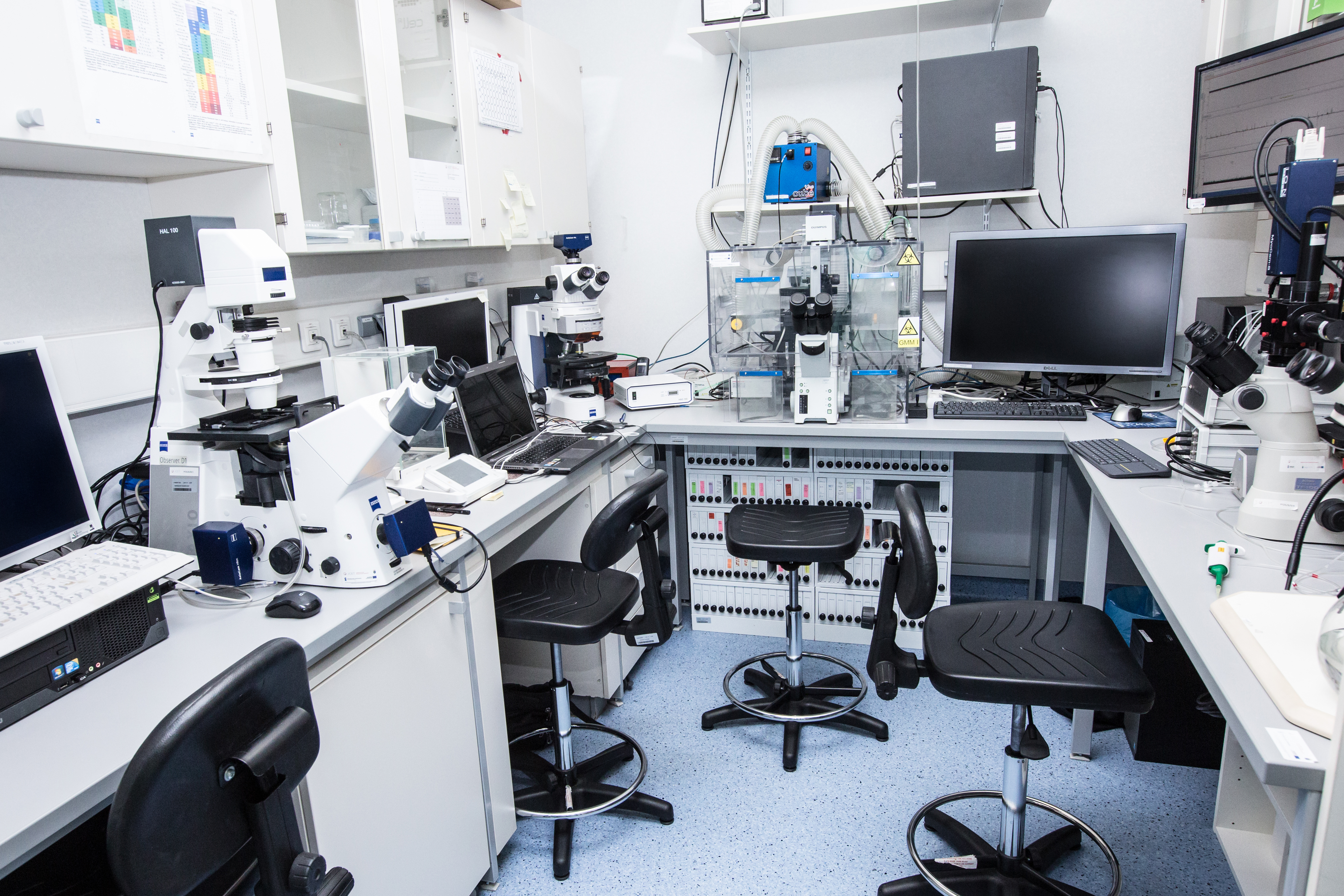
Project description:
Correct implantation of the embryo is one prerequisite of successful pregnancy. Implantation failure remains major problem either, in natural and assisted reproduction. This project will evaluate temporal dynamics of secretion of extracellular vesicles by the embryo during periimplantation. Embryo-uterine interphases from normal and developmentally compromised mouse embryos will be analysed. The research covered by the thesis will focus on the influence of embryonic secretions on the establishment of trophoblast invasion and implantation success.
Candidate should fulfil the following criteria:
- Basic knowledge of developmental and reproductive biology
- English language skills enabling the presentation of scientific results
- Experience with research techniques - cellular and molecular biology
- Master's degree in biology, biotechnology or a related field
- Animal handling certificate
How to apply?
Schedule of the competition:
- Opening of the competition: 04.11.2022
- Application submission deadline: 08.11.2022, noon
- Entrance exams: 24.11-25.11.2022
- Committee meeting - no later than: 25.11.2022
- Exam results: 28.11.2022
- Entries to the Doctoral School: 29.11-01.12.2022
- Entries to the Doctoral School - reserve list: 02.12.2022
Documents required at the recruitment application stage:
- a curriculum vitae (CV) with particular emphasis on scientific achievements;
- a motivation letter, explaining how the applicant’s background and research interests make them a suitable candidate for the position;
- the names of the researchers giving references to the candidate (their contact number and academic title);
- documents demonstrating the scientific achievements listed in the curriculum vitae, e.g. first page of the article;
- transcript of grades: diploma supplement or the official transcript of grades, or another document listing completed courses and grades. Information about the grading scale must be included.
In the event of the persons referred to in Article 186, section 2 of the Act,
- two opinions confirming the high quality of their research work and the high level of
- advancement of such work, issued by: a research fellow holding at least the academic degree
- of doctor habilitated or being an employee of a foreign higher education institution or a
- research institution, that has significant achievements in academic issues related to the
- curriculum.
Any document submitted in a language other than Polish or English must be accompanied by a certified translation into Polish or English.
Documents required for enrollment:
- the original application and a photograph;
- a photocopy and the original for inspection:
- a. a diploma certifying the holding of a degree of Master, Master Engineer or equivalent in a field of study from among those indicated in the detailed conditions of recruitment, or
- b. a diploma of completion of studies abroad, giving the right to enrol in a course of doctoral studies in the issuing country or recognised as equivalent to the appropriate Polish diploma confirming the qualifications of the second degree; if the candidate has not yet been issued such a diploma by the deadline for admission, he/she shall submit a certificate of completion of such studies and a written undertaking to provide the diploma of higher education entitling to enrol in a course of doctoral studies within the prescribed deadline;
- for inspection: identity document (passport in case of foreigners);
- originals of all other documents provided at the registration stage in the form of a scan.
In the event of exposure to harmful, noxious or hazardous factors, the applicant will, at the time of registration, be referred for a medical examination by an occupational medicine physician. The candidate shall be obliged to deliver, within the time limit set by the programme manager, a medical certificate confirming the absence of contraindications to take up education.
Higher education diplomas awarded abroad should:
- bear an apostille clause if the issuing country is covered by the Convention abolishing the requirement legalisation for foreign public documents, done at The Hague on 5 October 1961 (Journal of Laws of 2005, No. 112, item 938) or
- be subjected to legalisation, in other cases.
Any document submitted in a language other than Polish or English must be accompanied by a certified translation into Polish or English.
Insurance:
Each doctoral student, including a foreigner, admitted to the doctoral school is obligatorily subject to health insurance if he/she is not covered by such insurance on other grounds (e.g. employment relationship, contract of mandate, business activity, insured as a family member under 26 years of age, as the spouse of an insured person). The health insurance contribution is paid by Jagiellonian University and is financed from the State budget. In addition, a doctoral student receiving a doctoral scholarship is subject to compulsory retirement and disability insurance and accident insurance.
IMPORTANT:
A person admitted to the doctoral school begins education and acquires doctoral student rights upon taking the oath. The Department of Personal Affairs reports each doctoral student admitted to the School to compulsory health and social insurance at the commencement of education, i.e. from 1 October at the earliest. Until that time foreign candidates are obliged to cover the costs of insurance for the time of travel, treatment, etc. individually.


